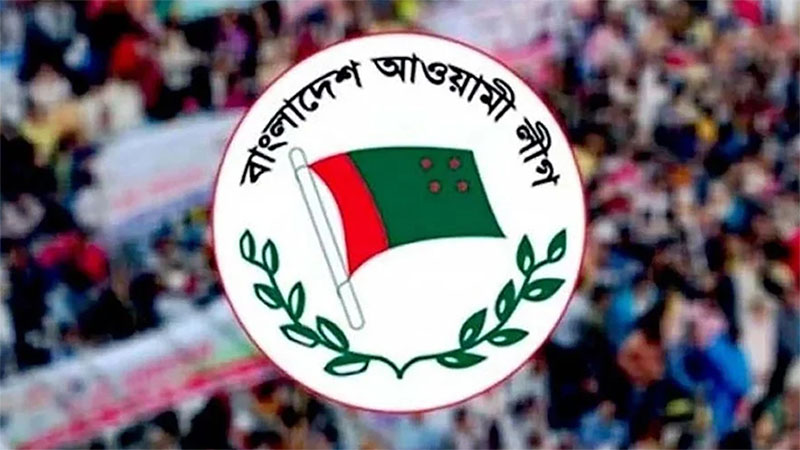Members of the Awami League and its affiliate organisations celebrated the 76th anniversary of the party in Bangladesh and abroad on Monday, despite facing a ban and state-sponsored persecution.
They brought out brief processions in several parts of Dhaka, including Panthapath, and distributed food among the helpless and destitute.
Outside Dhaka, processions were reported in Satkhira, Cumilla, Noakhali and Rangamati.
Meanwhile, the UK chapter of the Awami League organised a discussion at The Royal Regency in London, where Awami League President and five-time Prime Minister Sheikh Hasina spoke virtually as the chief guest.

Thousands of party workers staying in Bangladesh and abroad also celebrated the day by posting the party’s flag, Bangabandhu and Sheikh Hasina’s images and changing their profile pictures on social media.
The events were held as part of the party’s monthlong programmes declared on June 13, demanding the resignation of the dictator Yunus-led interim government and against the farcical trials at the International Crimes Tribunal, which is being operated by the Jamaat-e-Islami thugs.
On June 16, leaders and activists of the Dhaka Metropolitan Unit of the Awami League and its affiliated organisations brought out processions in Shahbagh, College Gate, Kamrangirchar, and Kadamtali of Dhaka, and Manikganj, Rajshahi, and Chittagong outside the capital.
The mainstream media has continued ignoring the Awami League’s statements and protest marches. They report only when someone is arrested or taken to court, or killed. They also did not carry any item on the party’s anniversary.
The Awami League will hold protests in divisional cities across the country on June 24, at all organisational district levels on July 1, and at upazila and union levels on July 16.
So far, the party has collected the names of 474 deceased leaders and activists, who have been killed since July.
At least 137,000 Awami League leaders, activists, journalists, intellectuals, professionals, and freedom fighters are currently in prison, according to Sheikh Hasina.
Approximately 80,000 cases naming over 5,00,000 leaders and activists have been filed, a “world record” by Yunus.
On Monday, Sheikh Hasina said Bangladesh is facing a deep crisis since an unconstitutional regime has illegally banned the party’s activities, just as Yahya Khan attempted to do in 1971.
“Over one hundred thousand of our leaders and activists have been unjustly arrested, and millions more are being harassed in false cases. This repression is not just against the Awami League—it is a grave conspiracy against the people, against democracy, and against the independence and sovereignty of Bangladesh.
“In this dark time, I say to our party leaders, activists, and peace-loving citizens: do not lose courage. Just like in the past, the Awami League will once again free Bangladesh from this crisis. The teachings of Bangabandhu—his courage, patience, and foresight—are the weapons with which we will win this battle.”
“As the daughter of the Father of the Nation, upholding his ideals, I have led this great organisation in rebuilding Bangladesh, combating extremism, reducing poverty, and paving the way for technological and infrastructural progress,” she said in a statement on the anniversary.
Bangladesh nowadays is in a terrible political, cultural, and administrative crisis because it is ruled by those who have no public basis, no constitutional legitimacy, and no mandate, the Awami League has said, calling for rebuilding the nation.
“Conspiracy is going on in the name of politics, exploitation is going on in the name of rule, and occupation is going on in the name of government,” the party said in a social media post on Friday.
“Not revenge, Awami League will rescue the nation from the darkness of illegal rule,” it said.
Highlighting the plans, the party said that the return of the Awami League means complete reconstruction of national institutions, reestablishment of the independence of the judiciary, ensuring the evaluation of merit in the administration, and restoration of the spirit of the Liberation War in education, culture, and economy.